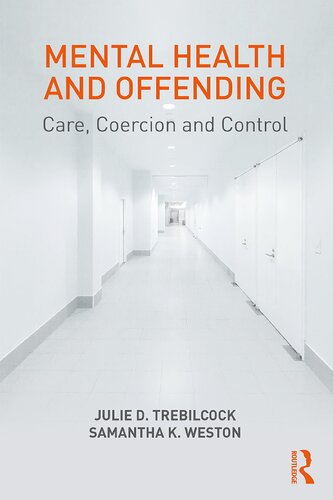

Most ebook files are in PDF format, so you can easily read them using various software such as Foxit Reader or directly on the Google Chrome browser.
Some ebook files are released by publishers in other formats such as .awz, .mobi, .epub, .fb2, etc. You may need to install specific software to read these formats on mobile/PC, such as Calibre.
Please read the tutorial at this link. https://ebooknice.com/page/post?id=faq
We offer FREE conversion to the popular formats you request; however, this may take some time. Therefore, right after payment, please email us, and we will try to provide the service as quickly as possible.
For some exceptional file formats or broken links (if any), please refrain from opening any disputes. Instead, email us first, and we will try to assist within a maximum of 6 hours.
EbookNice Team

Status:
Available5.0
32 reviewsThis book explores the controversial relationship between mental health and offending and looks at the ways in which offenders with mental health problems are cared for, coerced and controlled by the criminal justice and mental health systems. It provides a much-needed criminological approach to the field of forensic mental health.
Beginning with an exploration into why the relationship between mental health and offending is so complex, readers will be introduced to a range of perspectives through which mental health and its relationship to offending behaviour can be understood. The book considers the politics surrounding mental health and offending, focusing particularly on the changing policy response to mentally disordered offenders since the mid-1990s. With dedicated chapters concerning the police, courts, secure services and the community, this book explores a range of issues including:
• The tensions between the care, coercion and control of mentally disordered offenders
• The increasingly blurred boundaries between mental health and criminal justice
• Rights, responsibilities, accountability and blame
• Risk, public protection and precaution
• Challenges involved with treatment, recovery and rehabilitation
• Staffing challenges surrounding multi-agency working
• Funding, privatisation and challenges surrounding service commissioning
• Methodological challenges in the field.
Providing an accessible and concise overview of the field and its key perspectives, this book is essential reading for undergraduate and postgraduate courses in mental health offered by criminology, criminal justice, sociology, social work, nursing and public policy departments. It will also be of interest to a wide range of mental health and criminal justice practitioners.